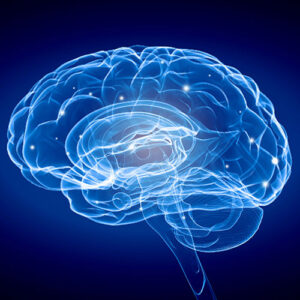Have you ever wondered what’s true and what’s not when it comes to eating disorders? Join us on a journey to uncover the facts behind these misunderstood conditions.
Prepare to be surprised as we unravel common myths and shed light on the truth.
Get ready to learn, understand, and support others better as we debunk some myths and explore what’s happening.
Virtual Allied Remote Diagnostic and Clinical Services aims to provide quality treatment customized to your needs.
Mental Effects of Appetite Dysregulation and Eating Disorders
Have you ever felt trapped in a cycle of unhealthy eating habits or struggled with how you see your body?
If so, you might have encountered what are known as eating disorders. These are a collection of conditions where a person’s relationship with food and body image becomes unhealthy and distorted.
There are several types of eating disorders, each with its own set of symptoms and challenges. Some of the most common ones include:
- Anorexia nervosa.
- Bulimia nervosa.
- Binge-eating disorder.
In anorexia nervosa, individuals severely restrict their food intake, often to the point of starvation, due to an intense fear of gaining weight.
On the other hand, bulimia nervosa involves episodes of binge eating followed by purging behaviors, such as self-induced vomiting or over-exercising, to compensate for excessive food intake.
If you’re struggling with eating disorders; weight gain as a result of binge eating or body image issues as a result of your eating habits please contact us today for further screening and assessment.
Myth 1: Eating Disorders are a Choice
Contrary to popular belief, eating disorders are not choices.
They are complex conditions influenced by genetic, biological, psychological, and environmental factors. Individuals struggling with eating disorders often feel trapped in a cycle of behaviors that are difficult to control.
Myth 2: Only Young Women are Affected
Contrary to popular belief, eating disorders do not discriminate based on age, affecting individuals across the lifespan. While it’s true that many cases are diagnosed in adolescents and young adults, eating disorders are increasingly recognized in both younger children and older adults.
Factors such as body dissatisfaction, cultural pressures, and life transitions contribute to the risk, regardless of age.
This underscores the necessity for awareness and vigilance in identifying eating disorders in all age groups, promoting early intervention and support.
Myth 3: Eating Disorders Are About Vanity
It’s a common misconception that eating disorders stem from a desire to be thin or attractive.
In reality, these disorders are often coping mechanisms for deeper emotional issues such as trauma, low self-esteem, or feelings of inadequacy.
Viewing eating disorders solely through the lens of vanity undermines the complexity of these conditions.
Myth 4: You Can Tell Someone Has an Eating Disorder by Their Appearance
Eating disorders come in all shapes and sizes, and it’s not always possible to tell if someone is struggling based on their appearance alone.
Individuals with eating disorders may appear healthy or even overweight, making it crucial to look beyond outward appearances and recognize the signs and symptoms of these disorders.
Myth 5: Recovery is Easy and Quick
Recovery from an eating disorder is a challenging and often lengthy process.
It requires a combination of medical, nutritional, and psychological support and a strong support network.
While recovery is possible, it takes time, patience, and dedication.
Consequences of Eating Disorders
Untreated eating disorders can have severe consequences for both physical and mental health.
They can lead to nutritional deficiencies, organ damage, depression, anxiety, and even death.
Seeking treatment early is essential for improving outcomes and preventing long-term complications.
Signs and Symptoms
Recognizing the signs and symptoms of eating disorders is the first step toward getting help.
These may include restrictive eating patterns, binge eating, purging behaviors, excessive exercise, preoccupation with food or body image, and changes in weight or appearance.
Managing Eating Disorders
- Seek Professional Help: Consult with healthcare professionals who specialize in eating disorders, such as therapists, dietitians, and physicians. A comprehensive treatment plan may include therapy (individual, group, or family), nutritional counseling, medical monitoring, and medication if necessary.
For comprehensive treatment, visit our practice at Virtual Allied Remote Diagnostic and Clinical Services to explore various treatment options. We offer therapy to explore emotional behaviors, nutritional counseling for healthier eating habits, regular medical check-ups, and medication management when necessary.
- Develop a Support System: Surround yourself with supportive friends, family members, and peers who understand your challenges and can provide encouragement and empathy. Joining a support group or online community for individuals with eating disorders can also offer validation and solidarity.
- Establish Regular Eating Patterns: Work with a registered dietitian to develop a balanced meal plan that meets your nutritional needs and promotes regular eating patterns. Aim to eat meals and snacks at consistent times throughout the day to stabilize blood sugar levels and reduce the likelihood of bingeing or purging behaviors.
- Challenge Negative Thoughts: Practice cognitive-behavioral techniques to identify and challenge distorted beliefs and negative thoughts related to food, body image, and self-worth. Replace negative self-talk with affirmations and realistic, positive affirmations.
- Practice Mindful Eating: Learn to tune into your body’s hunger and fullness cues and eat mindfully without judgment or distraction. Focus on savoring the flavors, textures, and sensations of food, and cultivate a nonjudgmental attitude toward eating and body image.
- Develop Coping Skills: Identify alternative coping strategies for managing stress, emotions, and triggers without turning to disordered eating behaviors. Explore healthy outlets such as journaling, art therapy, exercise, relaxation techniques, or engaging in hobbies and interests.
- Address Co-Occurring Issues: Address any underlying psychological issues, such as anxiety, depression, trauma, or low self-esteem, that may contribute to or exacerbate the eating disorder. Seek therapy or counseling to explore and resolve underlying emotional issues and develop healthier coping mechanisms.
- Set Realistic Goals: Set small, achievable goals for recovery and celebrate your progress along the way. Be patient and compassionate with yourself, and recognize that recovery is a journey that may involve setbacks and challenges.
- Practice Self-Care: Prioritize self-care activities that promote physical, emotional, and mental well-being, such as getting adequate sleep, engaging in regular exercise, practicing relaxation techniques, and engaging in activities that bring joy and fulfillment.
- Stay Committed to Recovery: Recovery from an eating disorder is possible with dedication, perseverance, and support. Stay committed to your treatment plan, attend therapy sessions regularly, and communicate openly with your treatment team about your progress, challenges, and goals.
Support and Resources for Managing Eating Disorders
There are numerous resources available for individuals struggling with eating disorders, as well as for their families, friends, and caregivers. Here are some comprehensive resources:
- National Eating Disorders Association (NEDA): Provides educational materials, support groups, helpline services, and more. Visit NEDA.
- Eating Disorder Hope: Offers articles, forums, treatment directories, and webinars. Visit Eating Disorder Hope.
- Academy for Eating Disorders (AED): A global organisation offering educational and professional resources. Visit AED.
- Something Fishy: Comprehensive eating disorder resources, including recovery tools and support forums. Visit Something Fishy.
- Project HEAL: Provides treatment scholarships and promotes eating disorder awareness. Visit Project HEAL.
- Treatment Directories: Psychology Today and other directories can help find local eating disorder treatment providers.
- Books and Publications: Books such as Life Without Ed by Jenni Schaefer, Intuitive Eating by Evelyn Tribole and Elyse Resch, and Brave Girl Eating by Harriet Brown can also offer valuable insights.
FAQs
Are eating disorders common?
Eating disorders affect millions of people worldwide, making them a significant public health concern.
Can eating disorders be cured?
While there is no “cure” for eating disorders, recovery is possible with the proper treatment and support.
Is it possible to recover from an eating disorder on your own?
Recovery from an eating disorder often requires professional intervention and support from loved ones.
What should I do if I suspect someone has an eating disorder?
Please encourage them to seek help from a qualified healthcare provider and offer your support and understanding.
Can eating disorders lead to other health problems?
Yes, untreated eating disorders can have severe consequences for both physical and mental health.
How can I support a loved one with an eating disorder?
Be patient, empathetic, and non-judgmental, and encourage them to seek help.






